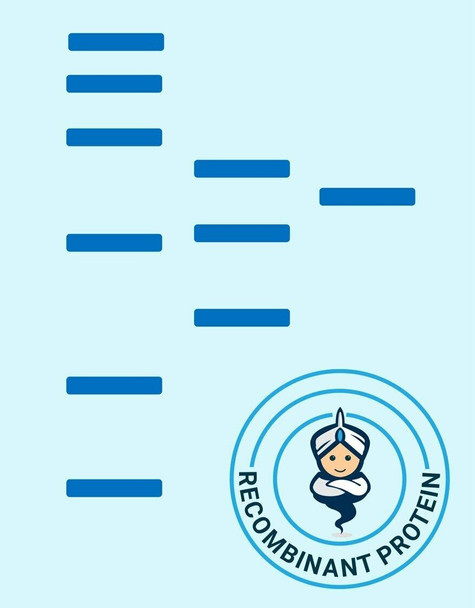Human FABP2/I-FABP Recombinant Protein (RPES2815)
- SKU:
- RPES2815
- Product type:
- Recombinant Protein
- Host species:
- E.coli
- Reactivity:
- Human
Frequently bought together:
Description
system_update_alt데이터시트
Human FABP2/I-FABP Recombinant Protein
Fatty Acid-Binding Protein 2 (FABP2) is a cytoplasm protein that belongs to the Fatty-acid binding protein (FABP) family of calycin superfamily. Fatty acid binding proteins are a family of small, highly conserved, cytoplasmic proteins that bind long-chain fatty acids. FABP2 is expressed in the small intestine and at much lower levels in the large intestine, the highest expression levels in the jejunum. FABP2 binds saturated long-chain fatty acids with a high affinity, but binds with a lower affinity to unsaturated long-chain fatty acids. FABP2 is probably involved in triglyceride-rich lipoprotein synthesis and may also help maintain energy homeostasis by functioning as a lipid sensor.
| Product Name: | Human FABP2/I-FABP Recombinant Protein (RPES2815) |
| Product Code: | RPES2815 |
| Size: | 10µg |
| Species: | Human |
| Expressed Host: | E.coli |
| Synonyms: | Fatty Acid-Binding Protein Intestinal, Fatty Acid-Binding Protein 2, Intestinal-Type Fatty Acid-Binding Protein, I-FABP, FABP2, FABPI |
| Accession: | P12104 |
| Sequence: | Met1-Asp132 |
| Fusion tag: | N, C-His |
| Endotoxin: | <1.0 EU per µg as determined by the LAL method. |
| Protein Construction: | Recombinant Human FABP2 is produced by our E.coli expression system and the target gene encoding Met1-Asp132 is expressed with a 6His tag at the N-terminus, 6His tag at the C-terminus. |
| Purity: | > 95% as determined by reducing SDS-PAGE. |
| Mol Mass: | 18.44 kDa |
| AP Mol Mass: | 17 kDa |
| Formulation: | Lyophilized from a 0.2 µm filtered solution of 20mM PB, 150mM NaCl, pH 7.4. |
| Shipping: | This product is provided as lyophilized powder which is shipped with ice packs. |
| Stability and Storage: | Lyophilized proteins are stable for up to 12 months when stored at -20 to -80°C. Reconstituted protein solution can be stored at 4-8°C for 2-7 days. Aliquots of reconstituted samples are stable at < -20°C for 3 months. |







